🎵 Music: Essential Concepts for Reading Comprehension
Music, as a universal form of expression, has played a critical role in shaping societies, cultures, and personal identities. Its presence in reading comprehension passages is often tied to debates on culture, technology, therapy, and philosophy. Understanding key concepts about music helps readers grasp complex issues, analyze arguments effectively, and navigate passages with greater confidence.
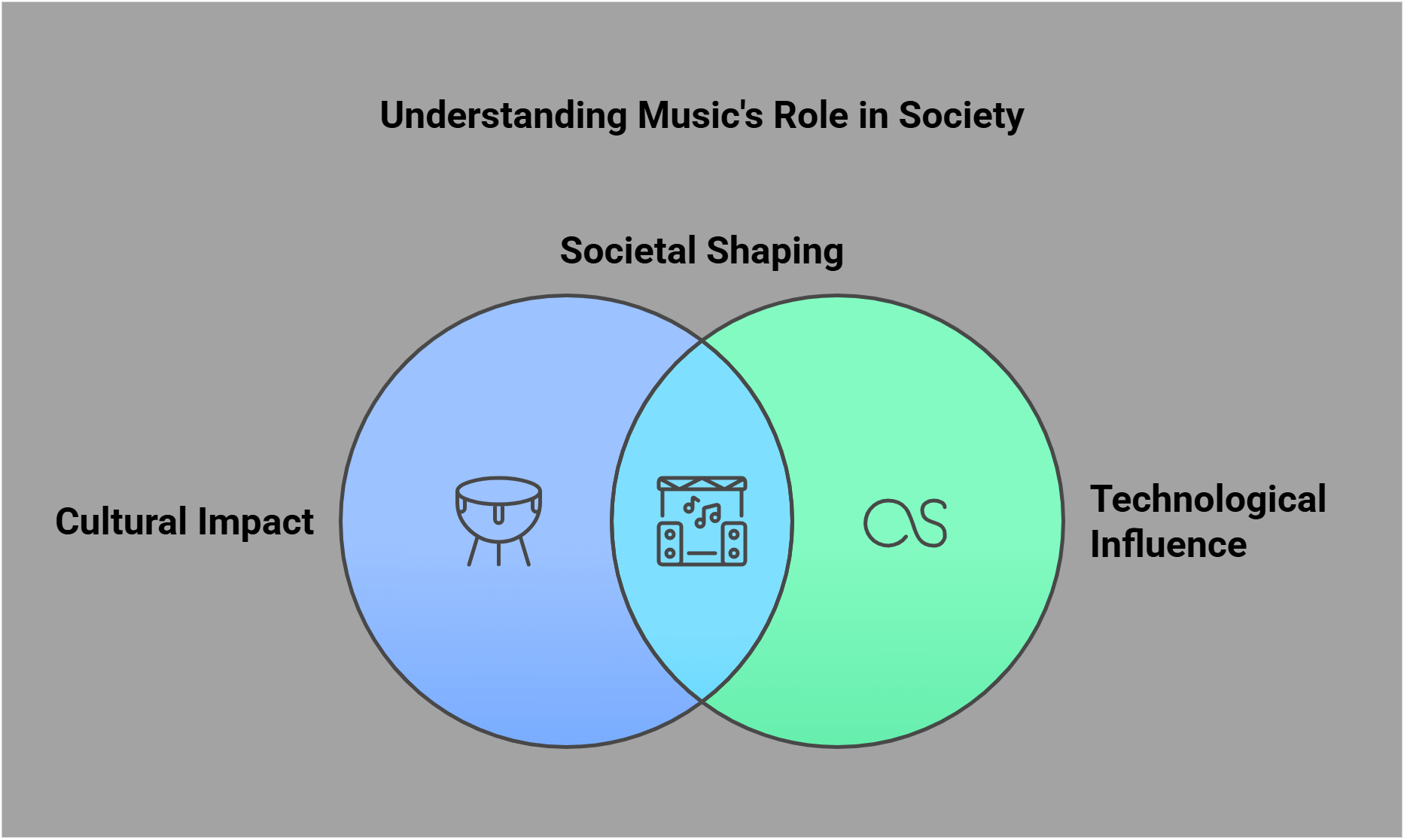
📋 Overview
In this guide, we’ll explore these key music-related concepts:
- Evolution of Music Genres
- Music and Culture
- Music Theory
- Impact of Technology on Music
- Music Therapy
- Ethnomusicology
- Music Composition
- Music History
- Music Education
- Music Performance
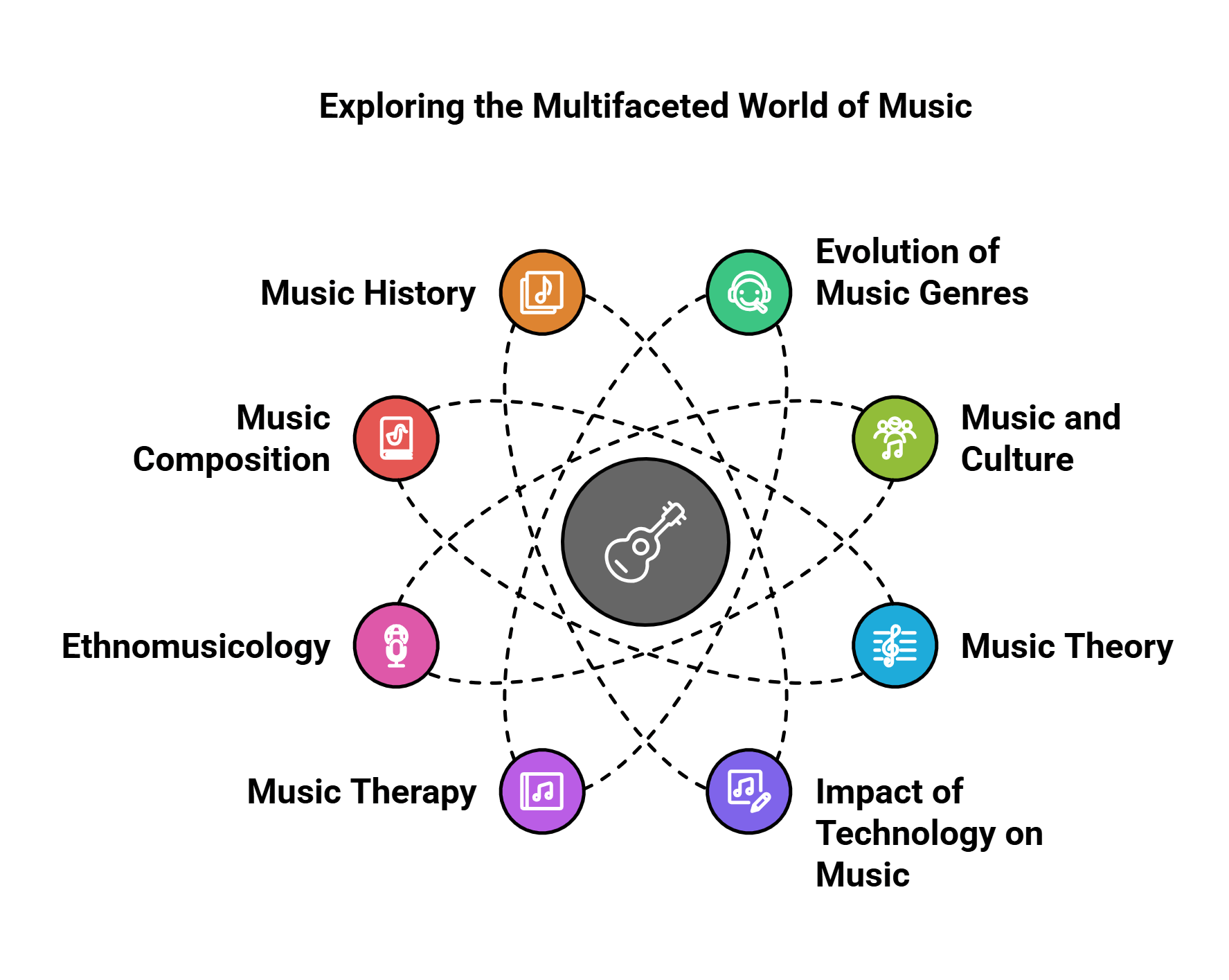
🔍 Detailed Explanations
1. Evolution of Music Genres
Music genres have evolved over centuries, influenced by cultural, political, and technological changes. From classical symphonies to jazz, rock, and modern-day electronic music, each genre reflects the values and emotions of its time. Understanding genre evolution involves recognizing how societal trends and historical events shape artistic expression.
- Genres reflect historical and cultural contexts.
- Fusion genres often emerge from cross-cultural influences.
- Modern genres like hip-hop and EDM challenge traditional structures.
- Evolution of music often parallels technological advancements.
- Analyzing genres helps uncover societal shifts.
Explained Simply: Imagine music like a big tree. Each branch is a genre, like jazz, pop, or rock. The tree grows new branches when people combine sounds or invent new instruments, just like when you mix two colors and get a new one!
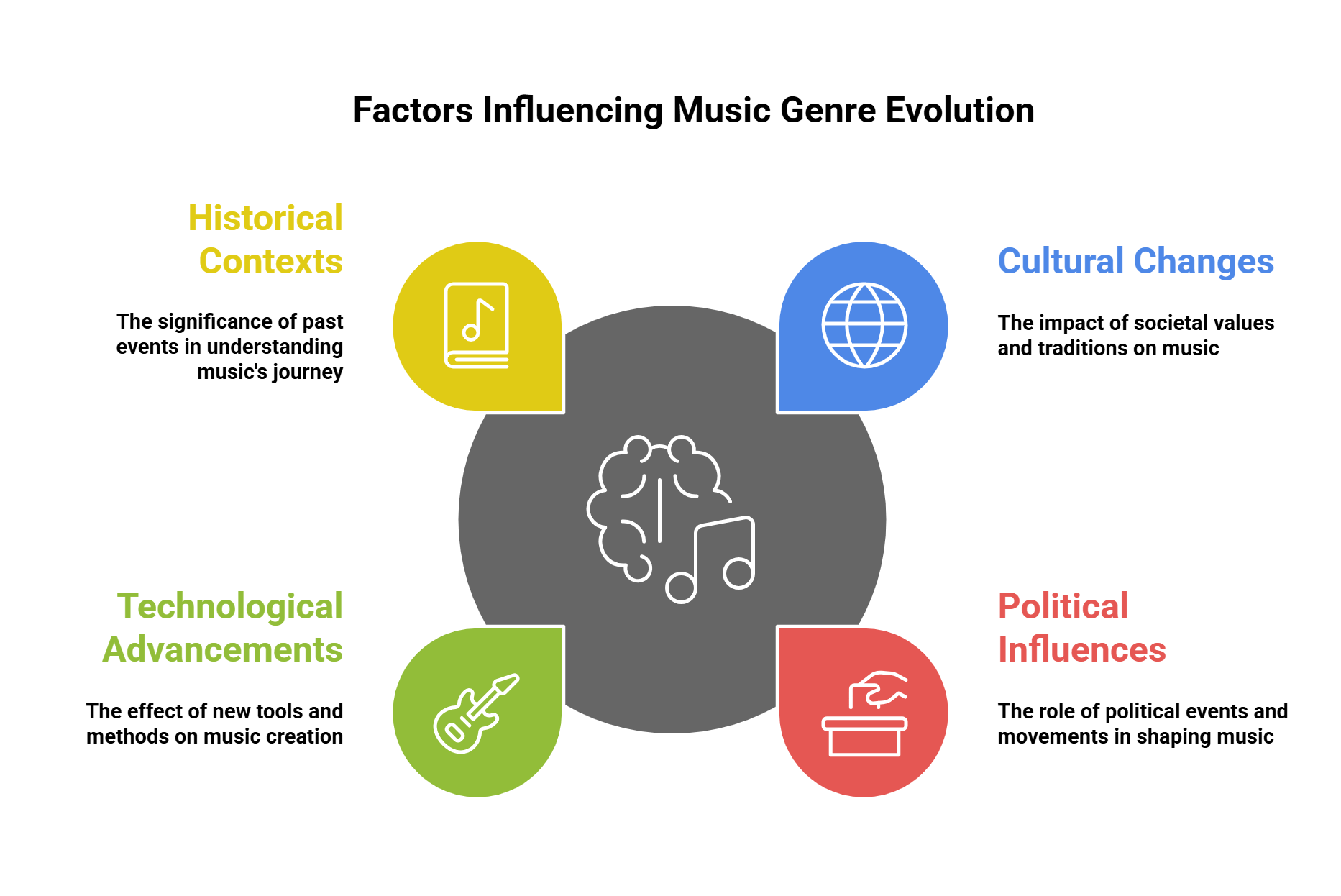
2. Music and Culture
Music is deeply intertwined with culture, serving as both a reflection and a driver of societal norms and values. It can preserve traditions, challenge conventions, or create solidarity within communities. For RC passages, understanding the cultural implications of music is essential to analyzing arguments about its role in society.
- Music can act as a cultural archive.
- It bridges generational and societal gaps.
- Music influences fashion, language, and social behavior.
- Cultural appropriation in music can spark debates.
- Music often embodies political and social resistance.
Explained Simply: Think of music like a scrapbook for a country or a group of people. It holds memories, tells stories, and even helps people remember important events—like a song about a hero or a festival.
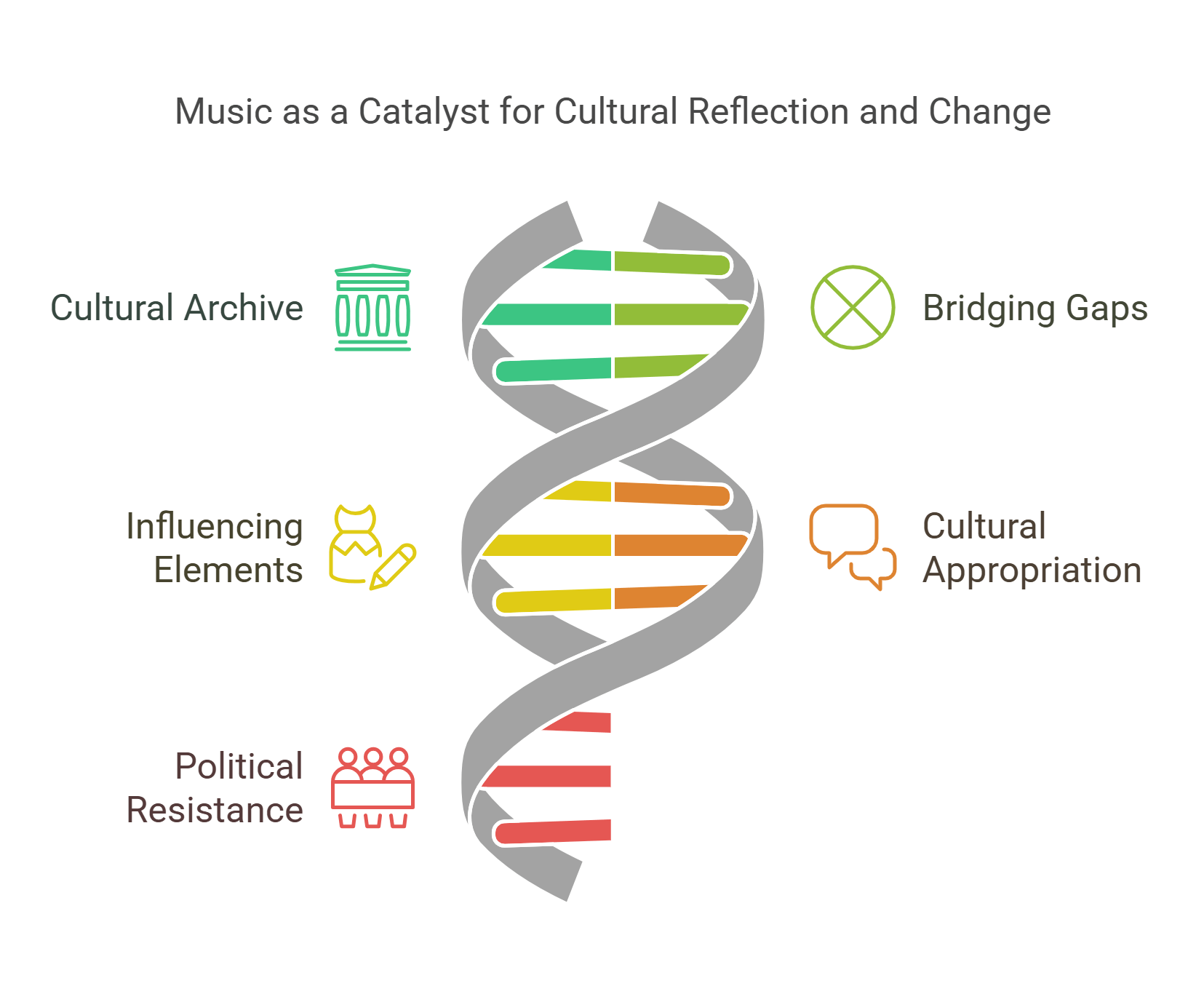
3. Music Theory
Music theory is the study of how music works, focusing on elements like melody, harmony, rhythm, and dynamics. It explains the structure behind what we hear, from simple tunes to complex symphonies. In RC passages, music theory might surface in discussions about creativity, mathematical patterns in art, or even cognitive psychology.
- Music theory describes the “rules” of music composition.
- It involves scales, chords, and rhythms.
- Mathematics often underpins musical structures.
- It provides a universal language for musicians.
- Music theory connects to emotions and storytelling.
Explained Simply: Think of music like building a LEGO castle. Music theory is the instructions that show you where each piece fits—whether it’s a high sound, a low sound, or a fast beat.
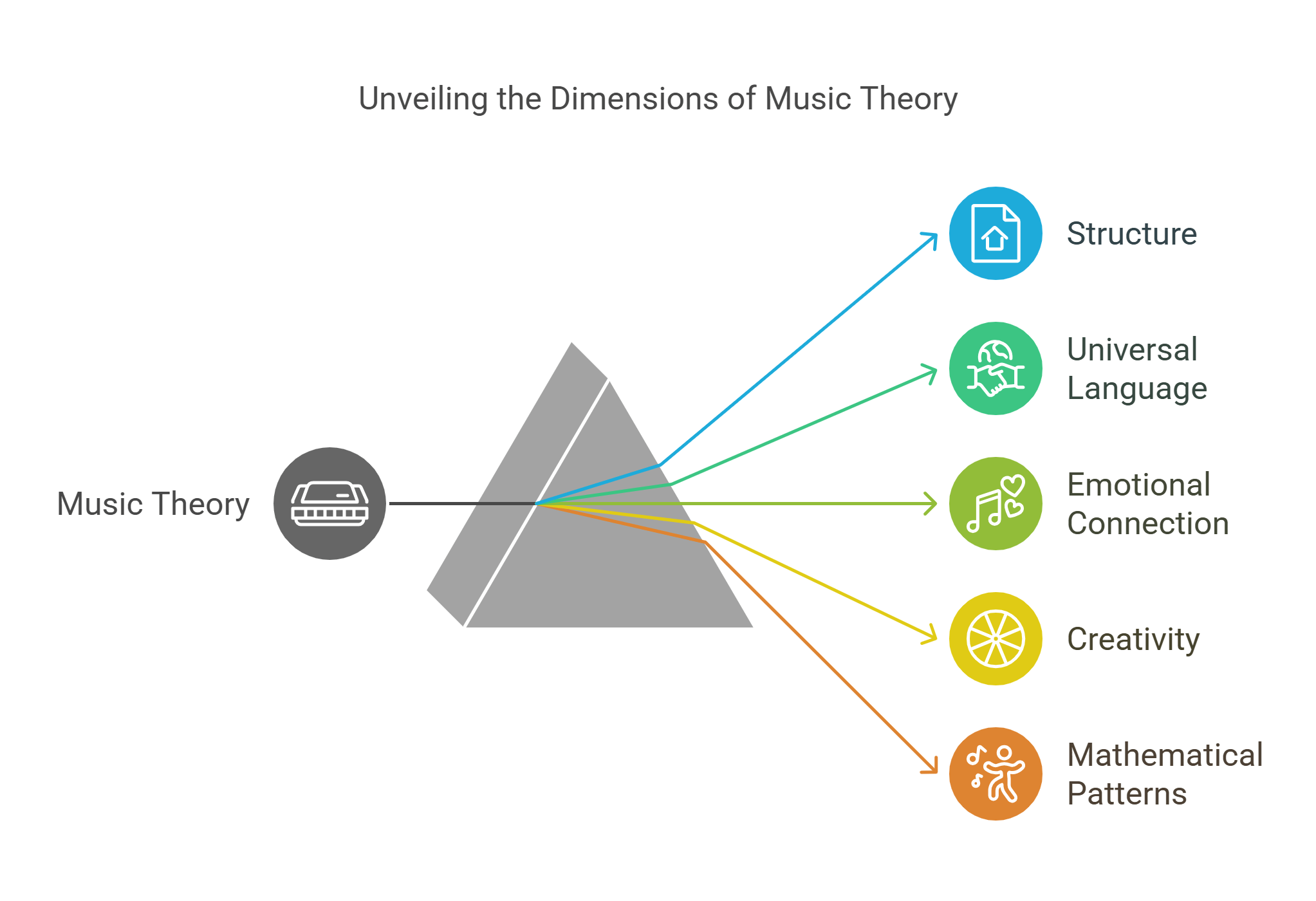
4. Impact of Technology on Music
Technology has revolutionized how music is created, shared, and experienced. From the invention of the phonograph to streaming platforms, technology shapes access, creativity, and even the business side of music. RC passages often explore how innovations like AI-generated music or digital instruments impact art and culture.
- Recording and streaming technologies make music global.
- AI and algorithms influence music production.
- Tech reshapes live performance experiences (e.g., holograms).
- Digital tools enable non-traditional music creators.
- Music copyright issues arise in the digital age.
Explained Simply: Imagine if your favorite band could play right in your living room because of a magic screen! Technology makes it possible for anyone, anywhere, to hear music, play it, or even make their own songs with just a computer.
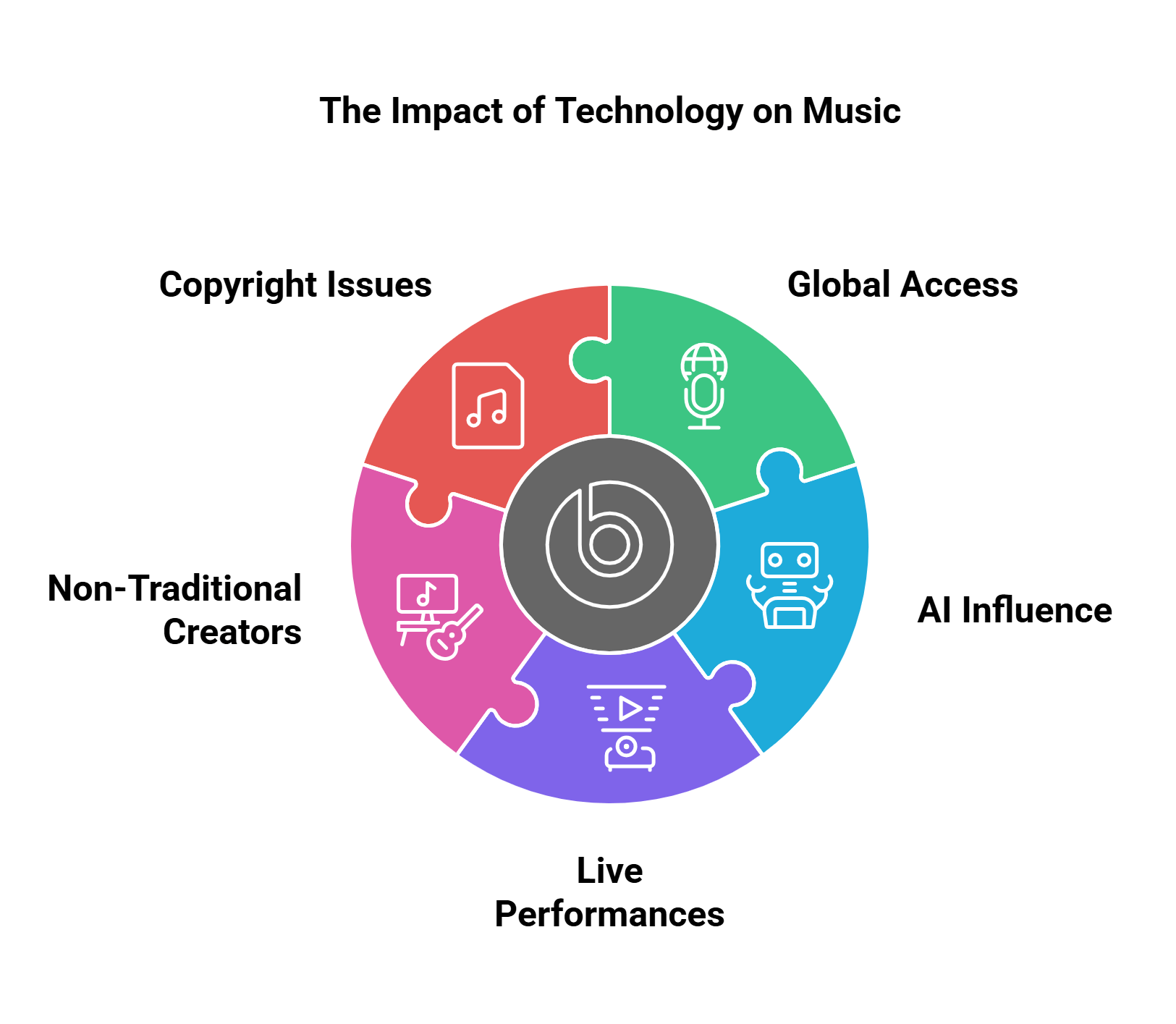
5. Music Therapy
Music therapy uses sound to improve emotional, cognitive, and physical well-being. It’s a growing field with applications in healthcare, education, and stress management. RC passages might discuss its scientific basis, ethical considerations, or broader social impacts.
- Music therapy helps with mental health and emotional expression.
- It aids in physical rehabilitation and pain management.
- It enhances memory and learning, especially in children.
- Music therapy is culturally adaptable.
- Ethical concerns include accessibility and cultural sensitivity.
Explained Simply: Have you ever listened to your favorite song when you were sad, and it made you feel better? That’s like music therapy—it helps people feel good inside, even when they’re sick or upset.
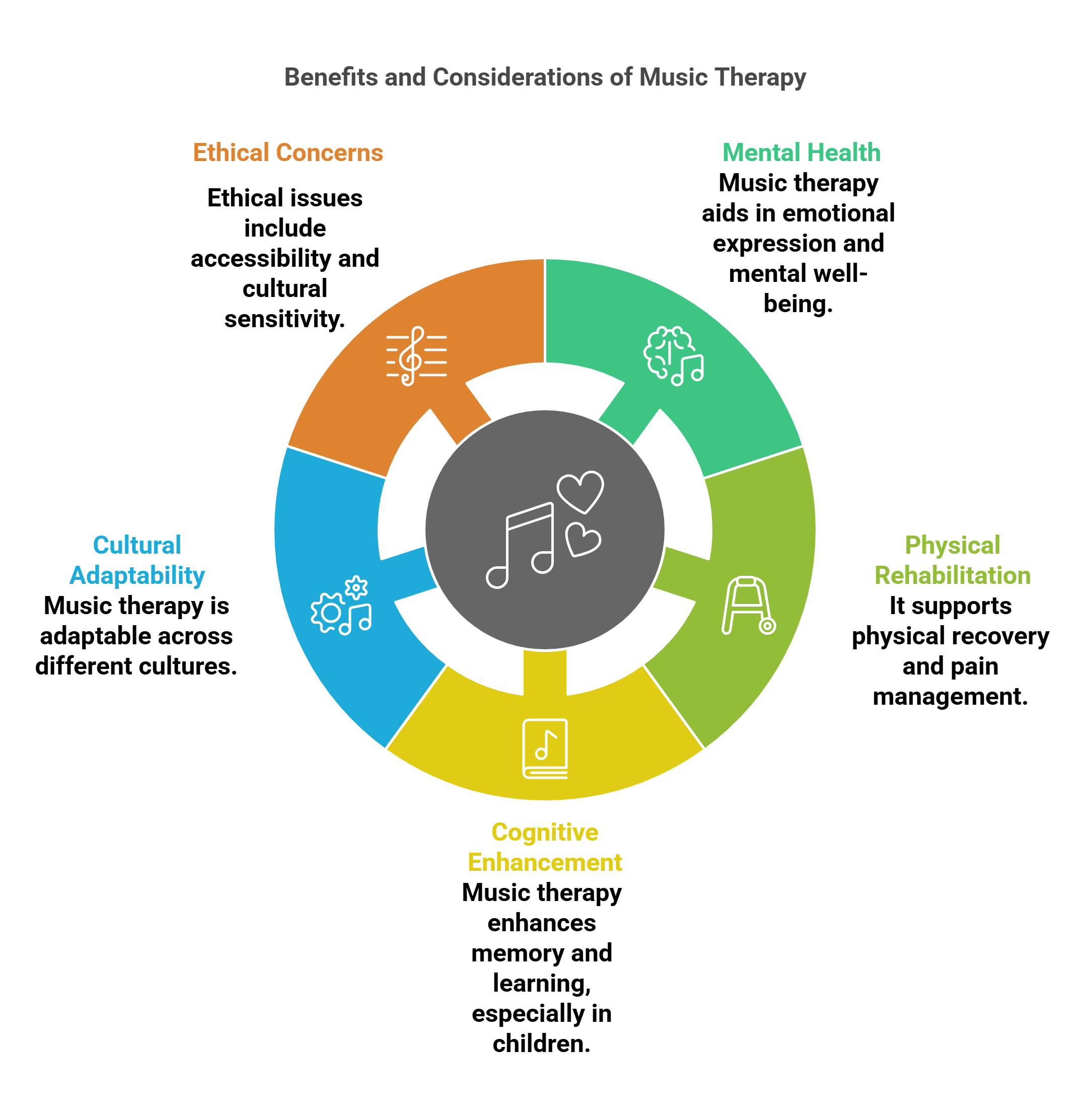
6. Ethnomusicology
Ethnomusicology is the study of music within its cultural and social context. It examines how music reflects the identity, values, and traditions of different communities around the world.
- Explores the cultural significance of music.
- Analyzes music’s role in rituals, festivals, and daily life.
- Examines how music reflects societal values.
- Studies diverse musical traditions globally.
- Connects music to anthropology and sociology.
Explained Simply: Ethnomusicology is like studying the stories behind songs people sing at weddings, festivals, or even while working. It’s about understanding why those songs are special to them.
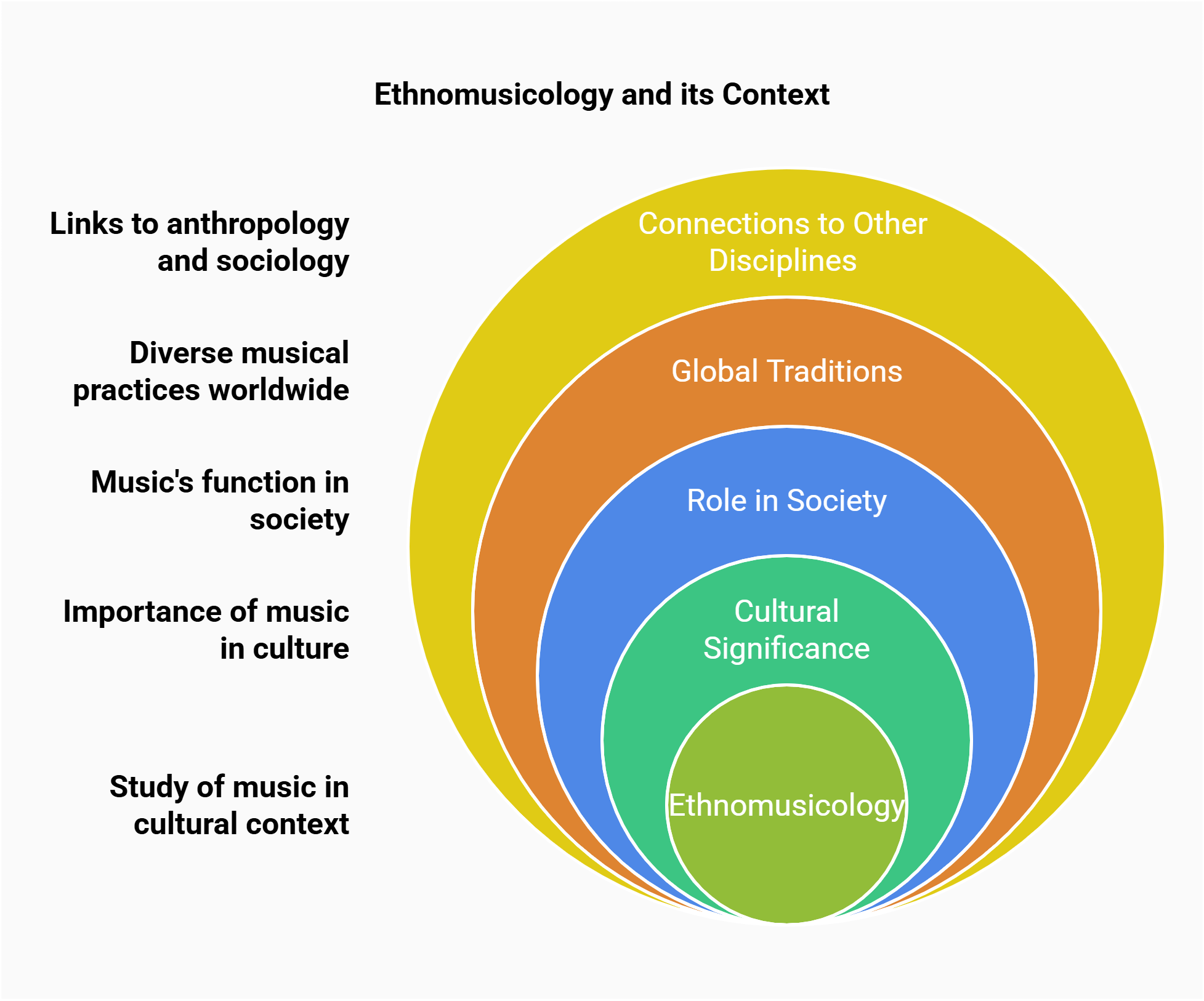
7. Music Composition
Music composition is the process of creating original pieces of music. It combines creativity, technical skills, and emotional expression to produce melodies, harmonies, and rhythms.
- Focuses on creating new music.
- Includes melody, harmony, rhythm, and lyrics.
- Explores how composers convey emotion and ideas.
- Influences from historical, cultural, and personal contexts.
- Relevant to understanding creative processes in music.
Explained Simply: Think of a composer as a chef who invents a brand-new dish by mixing ingredients in surprising ways. A music composer mixes sounds to create songs.
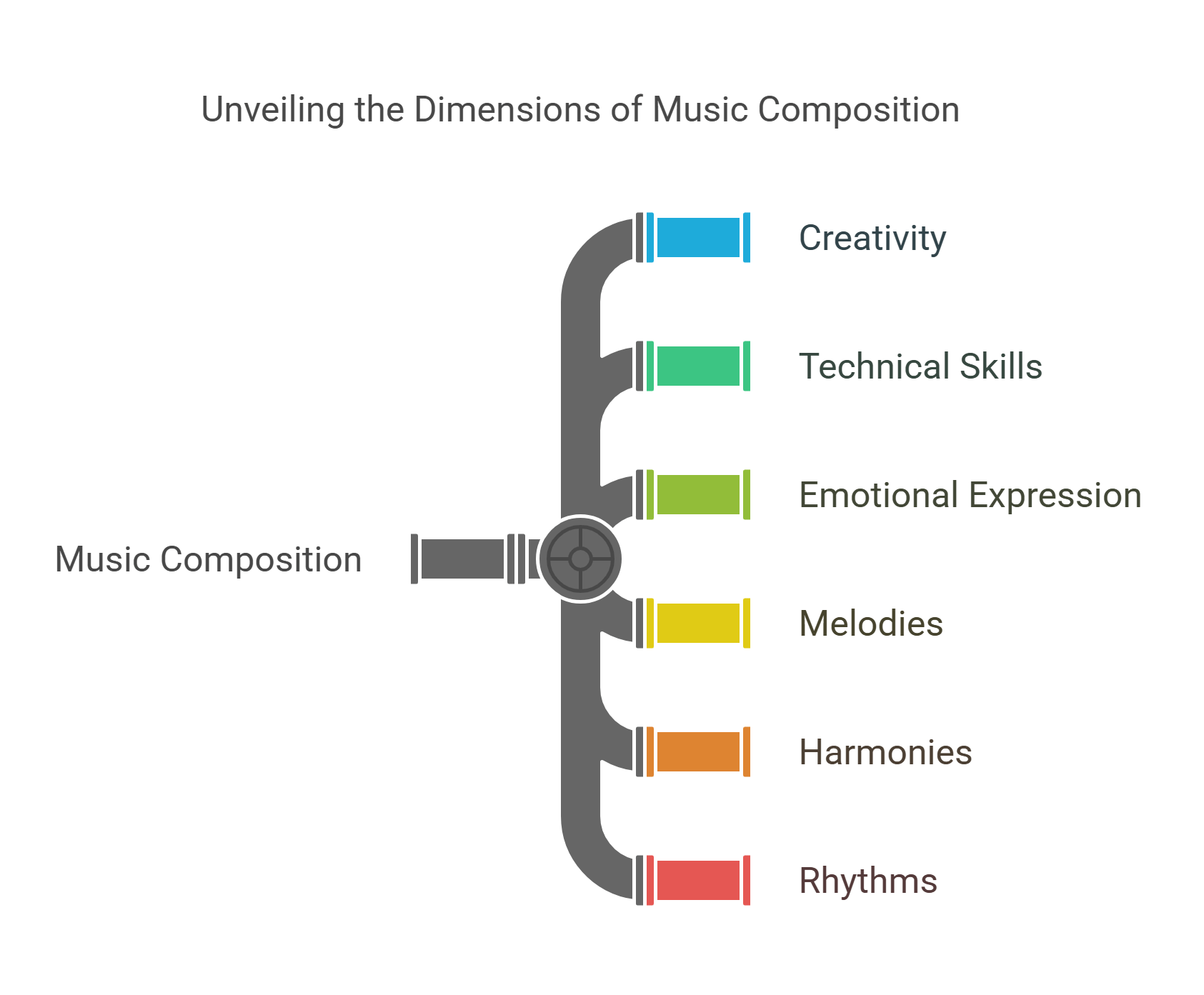
8. Music History
Music history traces the evolution of music across different eras, from ancient times to the modern day. It highlights how historical events, technological advancements, and cultural movements have shaped musical expression.
- Explores music’s evolution through different periods.
- Highlights influences of historical events and cultural changes.
- Discusses the impact of technology on music development.
- Examines the role of iconic composers and performers.
- Connects past traditions to contemporary music.
Explained Simply: Music history is like a timeline of your favorite songs, showing where they came from and how they changed over time.
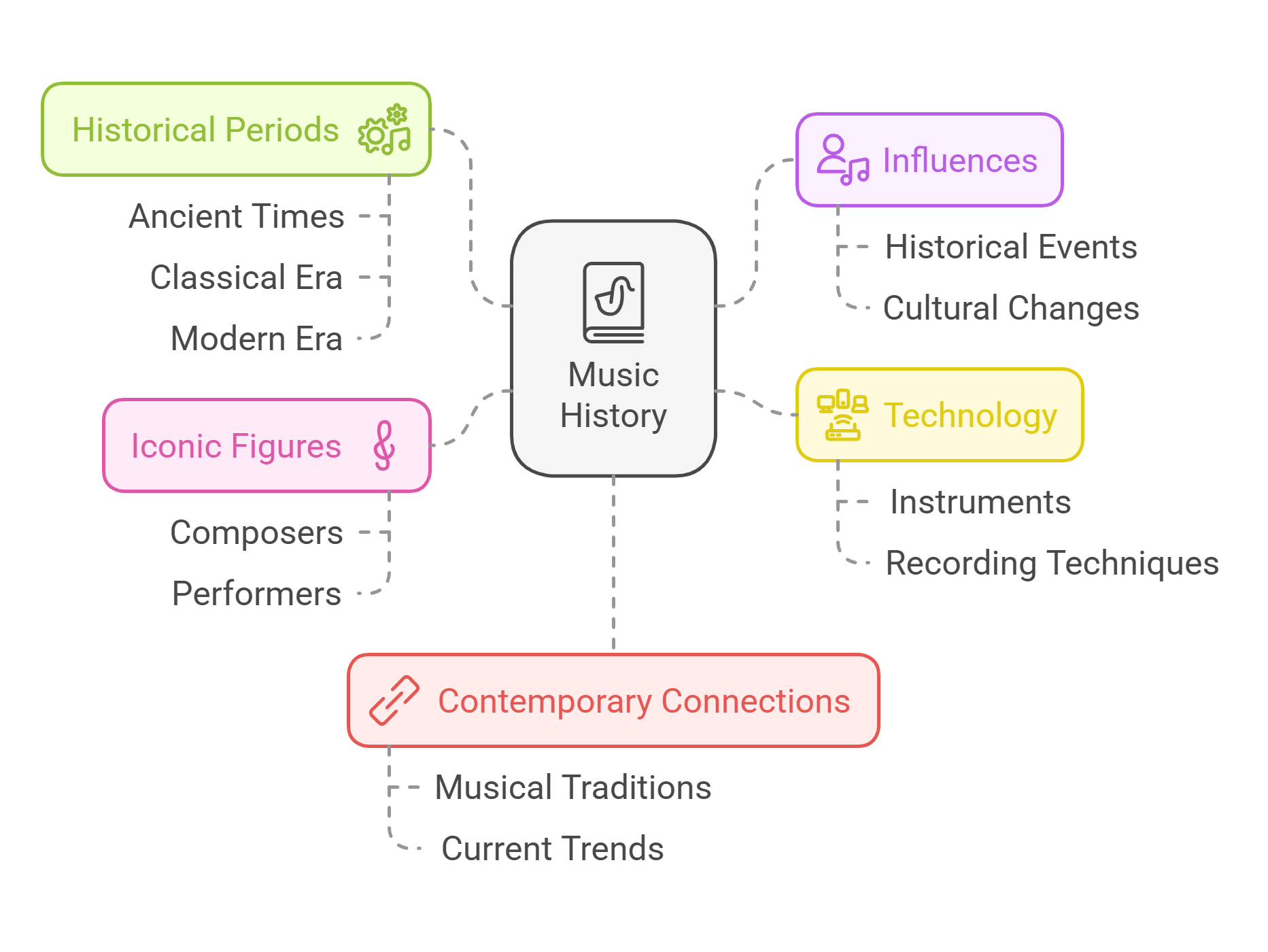
9. Music Education
Music education emphasizes teaching and learning music to develop creativity, discipline, and cultural appreciation. It explores the benefits of musical training for cognitive and emotional development.
- Focuses on teaching music skills and theory.
- Promotes creativity, discipline, and teamwork.
- Links music learning to brain development and academic success.
- Explores different approaches to music education.
- Relevant to debates about arts in school curricula.
Explained Simply: Music education is like taking lessons to play an instrument or sing, helping you become both a musician and a creative thinker.
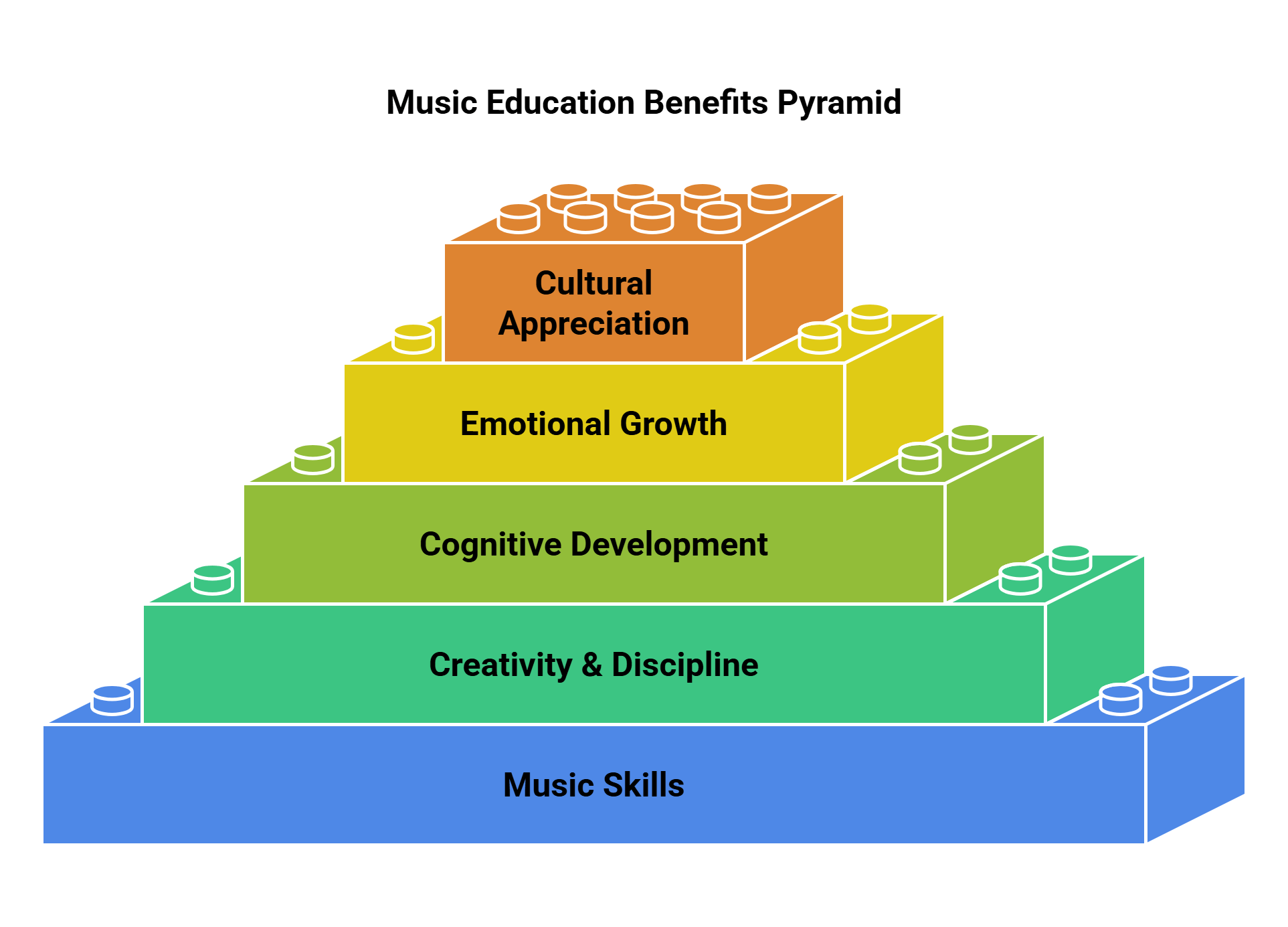
10. Music Performance
Music performance is the act of presenting music to an audience, showcasing the performer’s technical skills and emotional interpretation. It involves connecting with the audience and expressing the music’s intent.
- Combines technical skills and emotional interpretation.
- Focuses on audience connection and stage presence.
- Explores live vs. recorded performance dynamics.
- Highlights cultural traditions in performance styles.
- Central to understanding the impact of music on society.
Explained Simply: Music performance is like putting on a show where you play or sing to share the emotions and stories in the music with others.
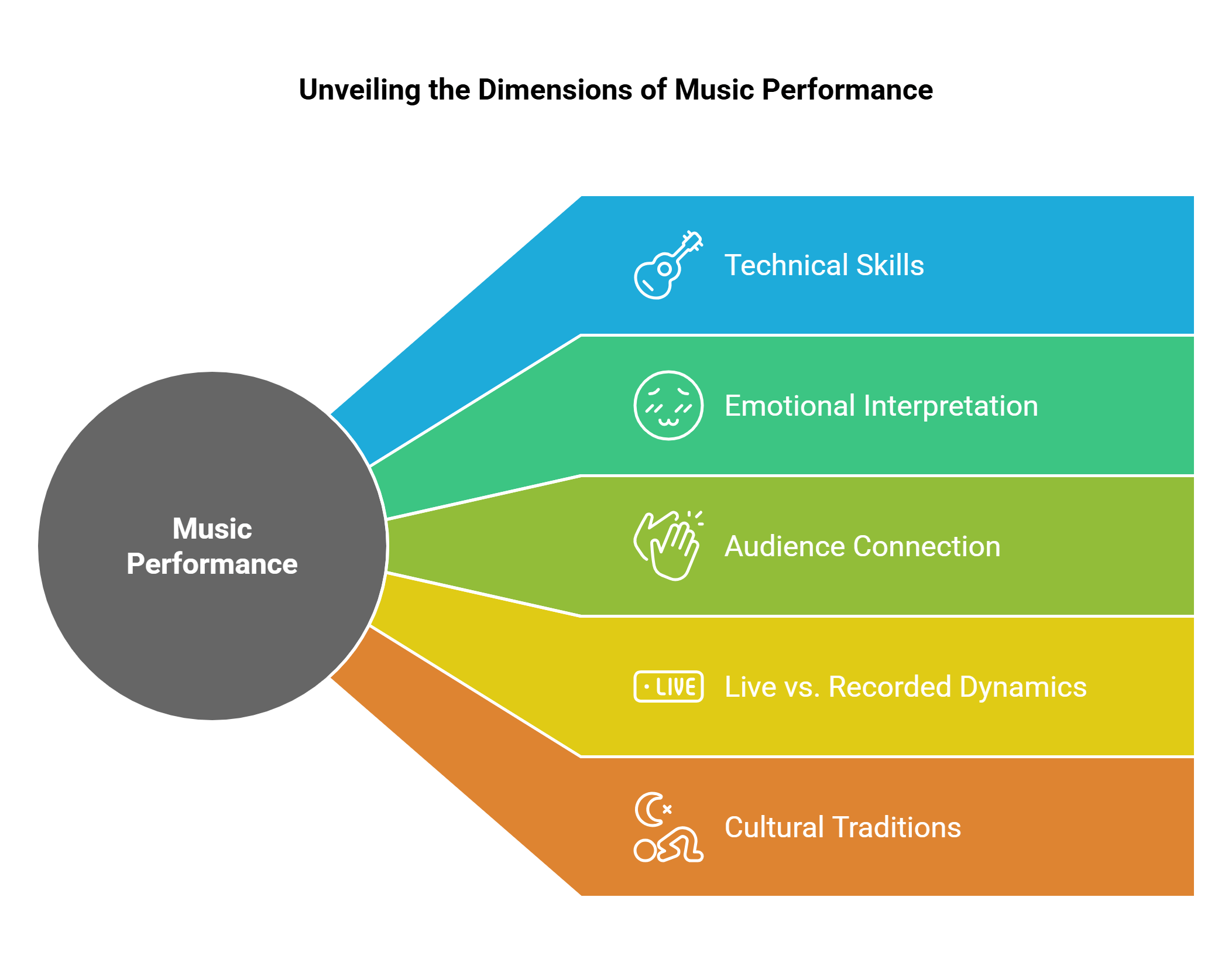
✨ Conclusion
Mastering music-related concepts prepares you to tackle RC passages on art, culture, history, or technology. Understanding these ideas equips you to analyze arguments, draw connections, and appreciate the broader implications of music in society. With this knowledge, you’ll navigate complex texts with ease and insight, ensuring you’re ready for any challenge the test presents.











